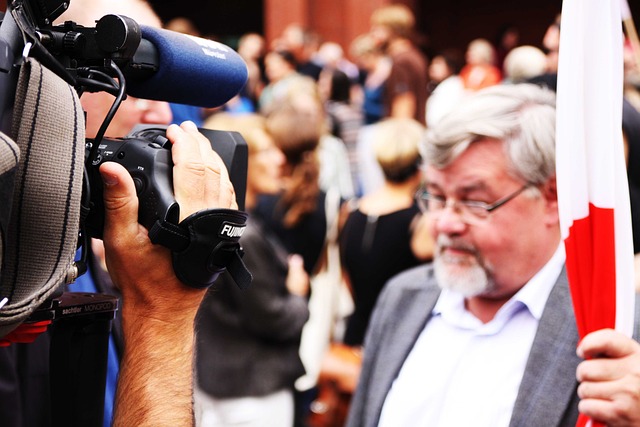In India, there are allegations that the media is controlled by the government. Critics say that the media only highlights issues that favor the government and avoids reporting on its wrongdoings and irregularities. As a result, the public remains unaware of the government’s misconduct.
The media ignores important issues and promotes government propaganda. For example, in 2023, severe destruction occurred in Manipur, but the government and media did not focus on it, leaving the public unaware of the situation.
Similarly, many incidents go unreported by the media. In the Hathras case, the victim faced injustice, and her cremation was done without following proper procedures. The culprits were not punished, contradicting the belief that “justice may be delayed but not denied.”
Media often prioritizes entertainment news over more important information. For example, in 2023, Seema Haider came to India from Pakistan with her children, claiming it was for love. Media outlets focused extensively on this story, treating it as entertainment rather than covering other significant news in India. Some even portrayed Seema as a Pakistani agent, turning the event into a spectacle.
This is just one example; there are many instances where the media focuses on less important, sensational stories instead of important matters.
Also read the blog on reality of biggest democracy https://www.globetact.com/uncategorized/the-reality-of-biggest-democracy-in-the-world/
The government often tries to bury issues that could harm its image, especially when these issues arise from its own policies or decisions. When the government believes that public awareness of these matters might damage its reputation, it works to keep them hidden. The media frequently supports the government in this effort, choosing to downplay or ignore these issues. This collaboration between the media and the government is unfair and not in the public’s best interest, as it prevents people from being informed about significant and potentially harmful actions or policies. Instead of holding the government accountable, the media’s support enables the concealment of important information from the public.
In a democracy, people often protest to present their demands. In 2024, there were several significant protests in India. For example, farmers protested to demand the implementation of Minimum Support Prices (MSP) for their crops. There was also a protest to save Ladakh’s environment, where Ladakhis demanded the status of Schedule 6 to prevent industrialization in their area. Additionally, in 2023, athletes protested seeking justice, claiming they were victims of sexual harassment.
Despite the importance of these protests, the media failed to give them much coverage. This lack of attention is problematic because all these protests were directed against government decisions or were about demanding rights and addressing injustices. The media’s failure to cover these events adequately means that public awareness and scrutiny of these significant issues are diminished. This lack of coverage often results from the media’s tendency to support the government, avoiding reports that could cast the government in a negative light. Consequently, important issues that require public attention and discourse are sidelined, undermining the democratic process.

Why Independent media is important?
Independent media plays a crucial role in a democratic society by acting as a watchdog over government activities and informing the public about important issues. Here are several key functions of independent media in a democracy:
Watchdog Role: Independent media scrutinizes the actions of the government, holding it accountable for its policies and decisions. This helps prevent abuse of power and corruption by ensuring transparency and public oversight.
Informing the Public: Through news reports, investigative journalism, and daily broadcasts, media provides citizens with the information they need to make informed decisions. This includes coverage of political events, government policies, public issues, and international affairs.
Providing a Platform for Debate: Media facilitates public debate by offering a platform where different viewpoints can be expressed and discussed. This is essential for a healthy democracy, as it encourages diverse opinions and critical thinking.
Educating Citizens: Beyond reporting news, media can also educate the public about their rights, government processes, and how to engage in civic activities. This empowerment is vital for active and informed citizen participation.
For these reasons, it is important that media remains independent from government control and other influences that could compromise its integrity. Freedom of the press ensures that journalists can report facts without fear of retribution, thereby maintaining the trust and confidence of the public. In summary, independent media is a cornerstone of democracy, essential for promoting transparency, accountability, and informed citizenship.
Independent media is often regarded as the fourth pillar of democracy. If the media does not perform its role effectively, it raises serious questions about the health of the democracy. The media is supposed to inform the public, hold the government accountable, and provide a platform for diverse voices and issues. When it fails to do so, the public remains uninformed about critical issues, government actions go unchecked, and the democratic process is weakened. Effective media is crucial for a functioning democracy, as it ensures transparency, accountability, and informed citizenry.
Media earns income mainly through two sources: subscriptions and advertisements.
Subscriptions: People pay to access content, like newspapers, magazines, or online news websites. This subscription fee helps media companies generate revenue.
Advertisements: Businesses pay media companies to display ads in their content. These ads can appear in newspapers, on TV, or on websites, providing another significant source of income for the media.
In essence, media companies make money by charging people to read or watch their content and by selling advertising space to businesses.
Major customer of Media:
Subscription revenue alone is often insufficient to cover the operational costs of media houses. Therefore, these organizations primarily depend on advertising income, which comes from publishing advertisements in newspapers or airing them on TV channels. A significant portion of this advertising revenue comes from the government, which needs to publicize its various schemes and initiatives to the public.

This financial dependency creates a compulsion for media houses to align with government instructions to maintain their business viability. If a media house speaks out against the government, it risks losing these lucrative advertising contracts. The government can withdraw its advertisements and press releases from media outlets that are critical of its actions or policies, which can severely impact their financial stability.
This dynamic creates a conflict of interest, where media houses may choose to avoid reporting on government shortcomings or controversial policies to safeguard their financial interests. As a result, the independence of the media is compromised, and its role as the fourth pillar of democracy is undermined. Instead of holding the government accountable and informing the public impartially, media outlets may end up serving as an extension of government propaganda, thereby weakening democratic processes and reducing the public’s ability to make informed decisions.
- Bangladesh is burning!!
- Know truth behind the emergency in 1974!
- Know about fundamental rights as per Indian Constitution
- Climate Change drastically effects on Politics and Economy
- When Will We Emerge as a Developed Society for girls?

[…] Media: The fourth estate responsible for informing the public and holding the government accountable. I have written blog on importance of independence of media. For more clarity read the same. Link is https://www.globetact.com/global-business/independence-of-media-in-india-is-compromised/ […]